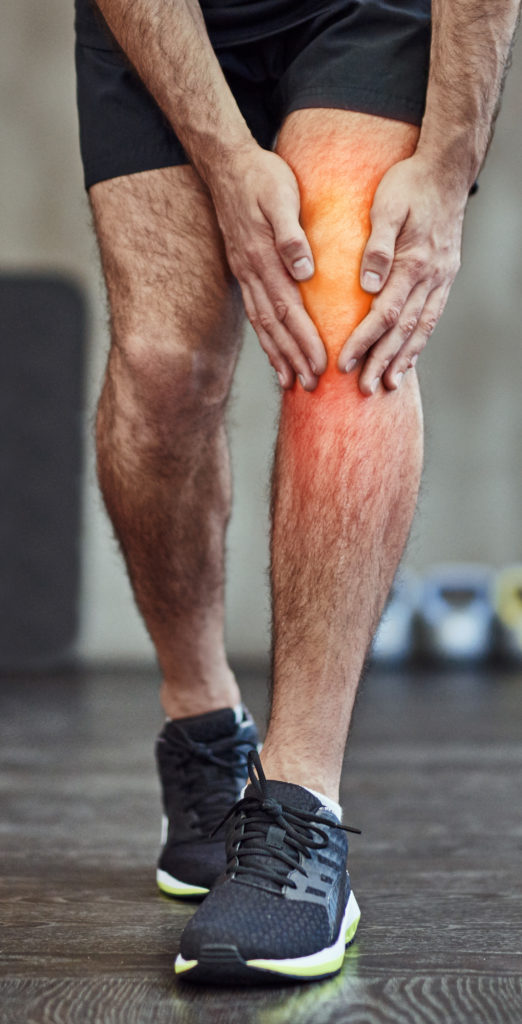How your weight affects hip and knee pain
Article courtesy of Ian Reinemeyer, MD, Internal Medicine, Baylor Scott & White — College Station
Creaking, twinges, aches and pains in the joints. Just a normal part of aging? It doesn’t have to be. Many people experience aches in their knees or hips and assume it’s just natural. There can be an underlying cause to the pain – your weight. To help explain how weight affects our joints, think of a waterfall. One drop of water on a stone doesn’t change the surface. A constant drip over years, though, can create a large hole in the stone.
The link between weight and joints
Our weight has a similar effect on our joints as the water on the stone. With each step, our joints must absorb impact. The more weight we gain, the more impact goes into the joint. Over time, this impact wears our joints down and results in inflammation called arthritis. Often, those with obesity or morbid obesity develop arthritis earlier than those with a healthy weight because of the increased force exerted on joints over the same amount of time.
Another example is the shocks on a car. We expect shocks on a car to last longer when the car encounters only smooth surfaces. When a car experiences rough terrain, we expect the shocks to wear down and give out. Obesity is the equivalent in this scenario of rough terrain.
Long-term effects of extra weight
Extra weight over a prolonged period causes inflammation in the joint and results in the joint space narrowing leading to more inflammation that can even extend to the bone. This damage to the cartilage eventually results in arthritic changes in the joint and can cause decreased range of motion, stiffness, pain, swelling or warmth.
Severe pain in joints
If you have severe pain in your joints it can have several potential causes. The pain may be from osteoarthritis, trauma, or rheumatological conditions. Because of the varying causes, it is important to be seen by a healthcare provider. This will help ensure you receive an accurate diagnosis and complete treatment plan.
How to lessen the burden
Losing even a small amount of weight can make a big difference. A study published in Arthritis & Rheumatism found that just one pound of weight loss resulted in four pounds of pressure being removed from the knee. Similarly, other studies have concluded that a pound of weight loss can remove six pounds of pressure off the hips.
As we increase the strain and stress on our body, the more it hurts and the quicker it breaks down. As we lose weight, that strain on our joints starts to decrease. This decreases the inflammation, which in turn, reduces the pain.
If you are experiencing pain, don’t just assume it’s due to your age. It could be a result of your weight. Talk to your doctor about building a weight loss plan to help you accomplish your goals.
If you’re concerned about your joint pain, find a physician or call 1.844.BSW.DOCS to schedule an appointment. Learn more about orthopedic care at Baylor Scott & White Health.
